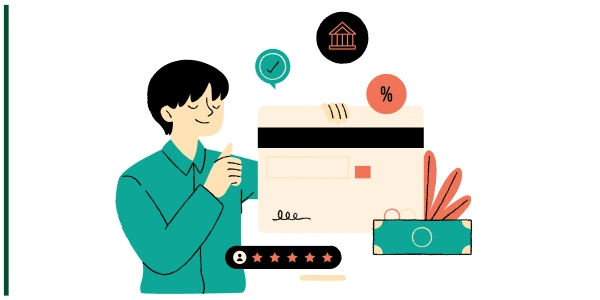Credit cards can be powerful financial tools when used correctly—but they can also lead to long-term debt and credit damage if mismanaged. For many young adults, their 20s mark the first time they’re offered a credit card. Learning how to use it responsibly can build your credit history, boost your financial reputation, and even earn rewards.
Here’s a complete guide to using a credit card wisely in your 20s.
Why a Credit Card Can Be a Good Idea
Despite their bad reputation, credit cards have significant benefits when used correctly:
- Build credit history
- Earn rewards and cashback
- Provide fraud protection
- Cover emergencies
- Make travel bookings easier
But these benefits only come if you pay your bill on time and avoid interest.
Tip 1: Start with a Student or Beginner Credit Card
If you’re new to credit, apply for a starter card:
- Student credit cards: Designed for college students with limited income
- Secured credit cards: Require a cash deposit and are easier to get approved for
- Retail/store cards: Easier approval but often have higher interest rates
Look for a card with no annual fee and a low credit limit to begin.
Tip 2: Always Pay Your Balance in Full
This is the most important credit card rule. When you carry a balance, you’re charged interest, which can be as high as 20% or more.
What to Do:
- Set up automatic payments to pay the full balance each month
- Use your card only for purchases you can afford to pay off immediately
- Treat your credit card like a debit card
Tip 3: Track Your Spending Closely
It’s easy to lose track of small charges that add up fast.
How to Stay on Top:
- Check your credit card app weekly
- Set up alerts for transactions and balances
- Use budgeting apps to categorize credit spending
Being aware helps prevent overspending.
Tip 4: Keep Credit Utilization Low
Credit utilization is the percentage of your credit limit you use. For example, if your limit is $1,000 and you spend $300, your utilization is 30%.
Best Practice:
- Keep utilization below 30%
- Ideally, stay under 10% to boost your credit score
- Ask for a credit limit increase after 6–12 months of responsible use
Tip 5: Never Miss a Payment
Late payments can hurt your credit score and trigger late fees.
How to Avoid It:
- Set calendar reminders or auto-pay
- Use bill tracking apps
- Make payments a few days before the due date to be safe
On-time payments make up 35% of your credit score—so stay consistent.
Tip 6: Avoid Cash Advances
Cash advances allow you to withdraw money using your credit card—but they come with high fees and interest rates, often with no grace period.
Recommendation:
Only use your credit card for purchases, not cash withdrawals or money transfers.
Tip 7: Don’t Apply for Too Many Cards at Once
Every time you apply for a credit card, a hard inquiry is added to your credit report. Too many applications in a short time can lower your score.
Smart Move:
Start with one card and build good habits. After a year or more of responsible use, consider a second card if it offers better rewards or travel perks.
Tip 8: Understand Your Statement and Interest
Know these key terms:
- Statement balance: What you owe for the month
- Minimum payment: The least you must pay (don’t rely on this!)
- APR (Annual Percentage Rate): The interest rate charged if you carry a balance
Always read your monthly statement to catch errors or fraud.
Tip 9: Use Rewards Wisely
Some cards offer cashback, miles, or points—but don’t let rewards tempt you to overspend.
Use It Like This:
- Put regular expenses (like groceries or phone bill) on the card
- Pay in full to avoid interest
- Redeem rewards regularly
Responsible use turns rewards into actual savings.
Tip 10: Monitor Your Credit Score
Keeping an eye on your credit score helps you understand how your habits impact your financial profile.
Where to Check:
- Credit Karma (free)
- Your credit card provider’s app
- AnnualCreditReport.com (official U.S. credit report)
Aim for a score above 700 for better loan rates and approval odds.
Your Credit Card: A Tool, Not a Trap
When used with discipline and awareness, a credit card becomes a powerful ally in your financial journey. It’s not free money—it’s a responsibility.
By starting small, paying in full, and building smart habits in your 20s, you set the stage for financial freedom, better credit options, and peace of mind down the road.
Next, I’ll generate a realistic horizontal image that fits this article. Then I’ll continue with Article 7: Why Every Young Adult Needs an Emergency Fund.
in God we trust

